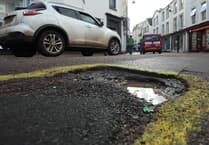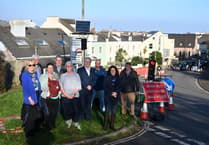DEVON County Council (DCC) have developed a new tool to help bring quality career advice for pupils up to the same high standard across the county.
Schools and colleges work hard to raise aspirations and provide high quality, impartial careers education to all young people enabling them to make informed decisions about their futures.
But good career advice, or meaningful conversations with young people about what they want to do once they’ve left school or college, isn’t always consistent, the council says.
‘With support of the Careers Hub and Gatsby Benchmarks, there are a lot of schools doing good work with their pupils to encourage them to think about what they want to do once they’ve left school, and about their future careers’ says Debbie Stafford, Devon County Council’s, Senior Economic Development Officer.
‘But because careers is not part of the national curriculum, there’s little consistency around language, quality or time spent on advice and guidance across schools; so when thinking about an individual’s best next steps, pupils in one school may have an advantage over pupils in another school’ Debbie added.
DCC have been looking at this issue, specifically in relation to pupils with special educational needs and disabilities.
National figures suggest that only 5.1 percent of people with special educational needs and disabilities gain paid employment in the UK, compared to 80 per cent of their peers.
The council says it wants to redress this, and have developed a new digital tool for schools, colleges and pupils to use to help inform and lead conversations with pupils about their future aspirations and needs.
It’s called vocational profiling, and while that in itself isn’t new, the innovative approach to it in Devon is, the council argues.
‘Vocational profiles have been around for a while and are a great way to identify a young person’s interests, achievements and what sort of job they’d like to have as an adult’ Debbie said.
‘But the online vocational profile tool that we’re encouraging schools and colleges in Devon to use with their pupils will describe a fuller and more individual profile, with more detail that is personal to them and using a format that is easier to use’ Debbie added.
The online profile is a digital document that allows young people from 12 years old and upwards to keep track of their goals, identify job interests, aspirations, what they enjoy or feel they are skilled at, their work experience, their achievements, and what kind of support helps them best.
Young people will be encouraged to take ownership of their vocational profile where possible, with support where necessary.
Maintaining the document is a joint responsibility for the young person and their school or college to keep their profile up to date while they are in full-time education.
Beyond education, family, friends, or professionals can support the young person to keep their profile up to date.
The council believes that the new vocational profile will not only help young people, and their school or college, but it will also benefit employers.





Comments
This article has no comments yet. Be the first to leave a comment.